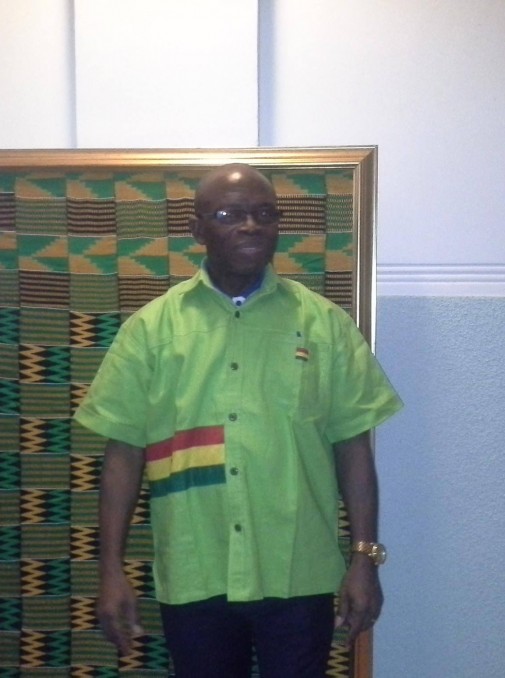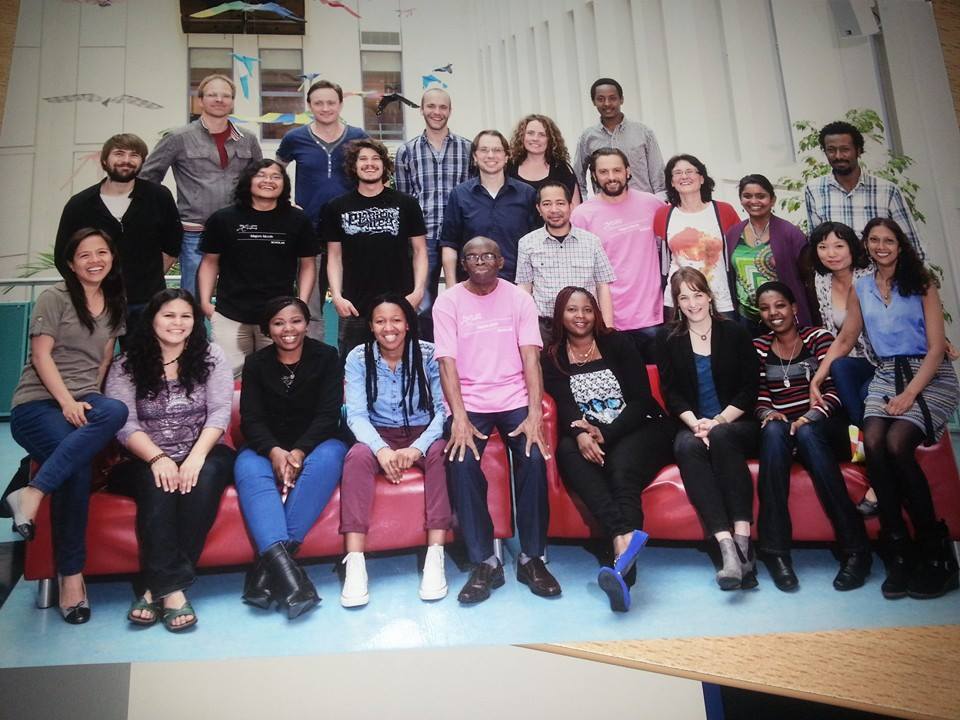Published originally in December 2015 By Mawutodzi Kodzo Abissath of Accra, Ghana (the full piece was also published on the Ghanaian government site here).

A funny African proverb says something to this effect: “A ram that is suffering from diarrhea messes up its own hind legs but boasts that it is soiling the pathway for commuters.”
Fellow citizens of the world, at long last, the much-touted UN Climate Change Summit 2015, dubbed Paris COP 21, has come to an end! And “Mother Earth, our Common Home” is free forever! Hopefully.
Trust the international civil servants with their legalese and romantic use of the English language when it comes to UN-sponsored events. But as a layman and for the purpose of this article, I intend to try as much as possible to break down the technical terms so that our own Junior High School graduates can understand the basic import of the Agreement that was adopted in Paris. After all is not the Agreement for future generations?
Adoption of the Paris Agreement
On Monday, November 30, 2015, the Conference of the Parties’ twenty-first session in Paris (COP 21) took off in Paris, France. The jaw-jaw exercises ended on Friday, December 11, 2015. The protocol (legal instrument) that was adopted is known as the Paris Agreement. It is under the United Nations Framework Convention on Climate Change (UNFCCC), simply referred to as “the Agreement.”
Even before I elaborate on the Paris Agreement, let me inform my fellow citizens of the world that the said Agreement has only partially been signed.
After the UN Secretary-General has signed the document (which he did in April of 2016), he, in turn, invites the rest of the member states of the world body, known in this context as the “Parties to the Convention” to another ceremony to sign the Agreement. These Parties are expected to do this “at their earliest opportunity, and to deposit their respective instruments of ratification, acceptance, approval or accession, where appropriate, as soon as possible.”
It is anticipated that this signature business will continue until April 2017, by when Parties to the Conference are expected to have endorsed the accord. So this ritual will take two years to complete. This process is what is known in the civil service as bureaucracy. Thus, you can describe the simple signing of the Paris Agreement as “international bureaucracy of the first degree” if you please.
Reader, do you think a country like Ghana—where bush fires, ‘galamsey’ or illegal mining, and charcoal burning, are destroying our forests, rivers and environment—will have to wait until April 2017 before taking action necessary? This is why all countries that have adopted their nationally intended contributions to reduction of green house gas emissions to climate change must take their destiny into their own hands.
In other words, developing countries, especially in Africa, must not rely on the promises of industrialized nations at all. It is their reckless human activities that brought us all where we are today. Most often some of their promises may not only be hyperbolic but hypocritical as well. They are déjàvu!
Ghana as a nation should not stand and stare into the sky expecting the Master Jesus to descend at all. Rather, we must be real as a people. What can we do to stop or at least to minimize the effect of climate change on our environment? How do we manage our natural resources prudently?
Must we continue the rapacious pollution of our water bodies and the fast drying up of our rivers? Do we have to take delight in destroying our forest reserves? Do we have to be setting wild bush fires in reaction to little rodents like rats? How do we ensure proper protection of our environment to guarantee food security through sustainable development? These are some fundamental questions that must engage our mental gymnastics locally, while hoping for the magic of the Paris Agreement globally.
What does the Paris Agreement say?
Negotiators unanimously agreed that “emissions-slashing commitments” must be made, and that industrialized nations who are the worse climatic offenders must help poor countries financially to fight climate change.
Previously most advanced nations were playing tricks at the negotiating table, pretending to be committed to the terms of the various agreements adopted, be it Kyoto or Copenhagen or Rio de Janeiro etc. But they returned home only to renege on their promises and go back to their bad habits of global warming.
The worse thing was that they never wanted to spend a cent—or one Ghanaian Cedi—to support developing countries in this fight against climate change. It was this singular adoption of “financial commitment” that was hailed as the victory of the Paris Agreement. It is historical! But how much exactly was committed at the Conference?
Some foreign media reported that the target was $100 billion USD. But they quickly added that although this amount was to be raised by 2025, the agreement failed to specify how much any country must pay so that they could be held accountable if they renege on their promises. This explains why as a writer in a developing country the title of my article is “Victory for mankind or empty promises to humanity?”

Thank you MAWU for a very clear assessment of what inadequate diarrhea that conference actually has produced….too little too late…uh oh….